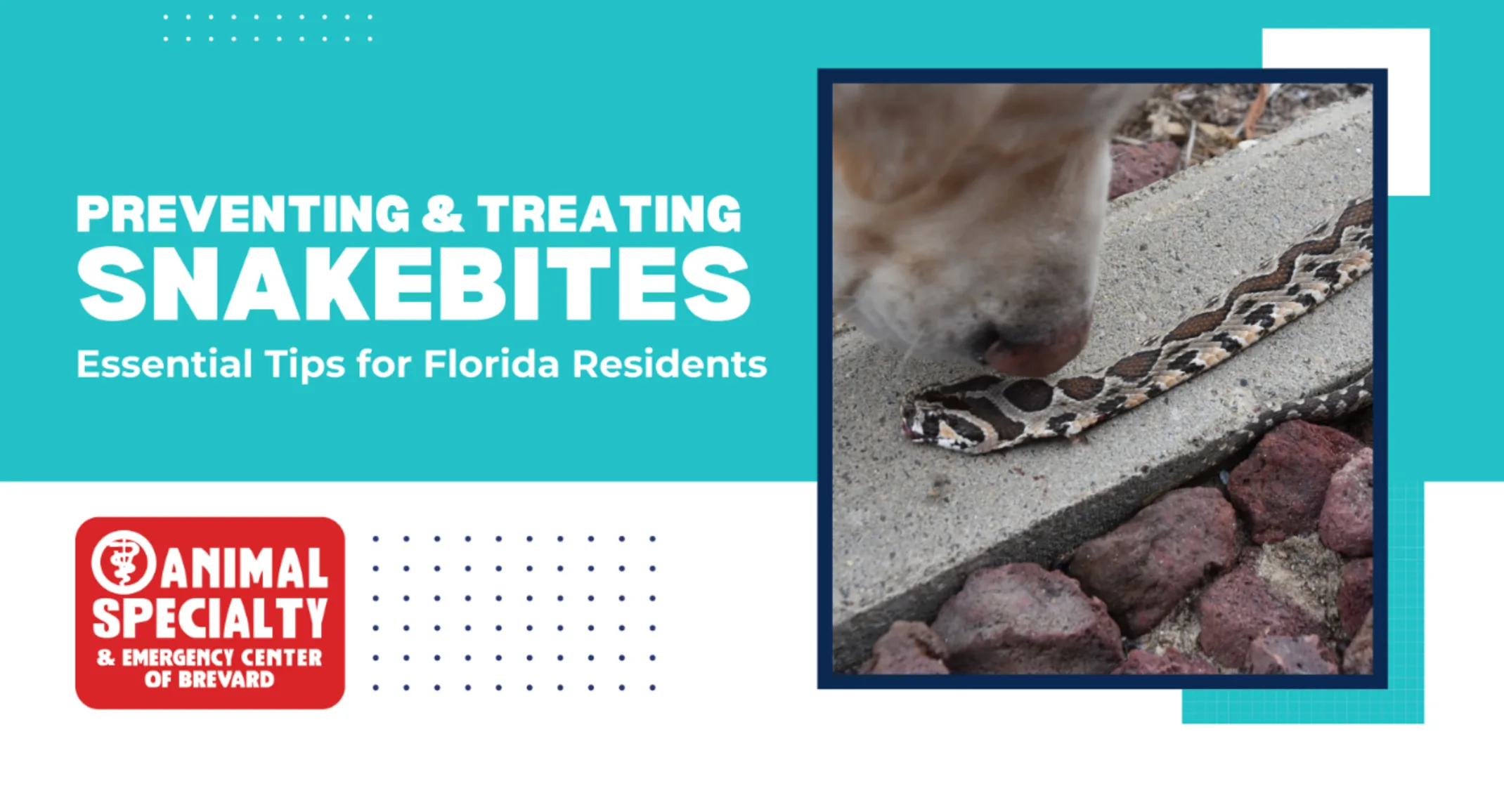Preventing & Treating Snakebites in Pets: Essential Tips for Melbourne Residents
August 26, 2025 · Pet Safety

Living in Melbourne, Florida, means enjoying the outdoors, but it also means sharing space with wildlife, including venomous snakes. Snakebites can be life-threatening for pets, and knowing what to do can make all the difference. At ASEC, we keep a large supply of antivenom on hand and are here 24/7 to provide expert care.
Understanding Florida’s Venomous Snakes
There are two main categories of venomous snakes in our area, and they’re treated very differently:
Pit Vipers (rattlesnakes, cottonmouths, copperheads)
Cause significant swelling, bleeding, and pain at the bite site.
We keep antivenom in stock and can treat these cases on-site.
Exact snake identification is not required since the same antivenom works for all pit viper bites.
Coral Snakes
Much less common but very dangerous.
Their venom causes paralysis, and bites often don’t cause swelling or visible marks.
Coral snake antivenom is only available at the University of Florida. If your pet is stable, we typically refer them there.
If you suspect your pet was bitten by a coral snake or found them near one, call us immediately for guidance.
Prevention: Keeping Your Pet Safe
Supervise Outdoor Time: Always watch your pets when they are outside, especially in wooded areas, tall grass, or near water sources where snakes tend to hide.
Avoid Known Snake Habitats: Try to keep your pets away from thick underbrush, leaf piles, or rock crevices.
Clear Your Yard: Keep your lawn mowed, remove debris and wood piles where snakes may hide, and consider fencing that deters snakes.
Train Your Pet: Teaching your dog basic commands like “leave it” can help prevent curious pets from approaching snakes.
Recognizing a Snakebite
If your pet is bitten, early signs may include:
Sudden yelping or pain
Swelling or bruising (common with pit vipers)
Bleeding from the bite site
Weakness, lethargy, or collapse
Vomiting or drooling
Difficulty breathing or paralysis (more common with coral snakes)
Not all bites are immediately obvious, so any sudden change in behavior after outdoor activity warrants close attention. If your pet has been near a snake and you’re unsure whether they were bitten, err on the side of caution and call us.
What to Do If Your Pet Is Bitten
Stay calm and keep your pet as quiet and still as possible.
Remove collars, harnesses, or anything constricting near the bite or swelling area.
Do NOT try to remove the venom, apply ice, use a tourniquet, or give home medications, as these can worsen the injury.
If safe to do so, you may take a photo of the snake, but do not try to capture or bring it. Delaying treatment or risking your own safety isn’t worth it.
Call us immediately and head directly to our hospital. Early treatment saves lives.
Treatment at Our Hospital
For pit viper bites, treatment usually includes:
Antivenom administration
Pain management
IV fluid support and close monitoring
For suspected coral snake bites, we stabilize your pet and coordinate with the University of Florida if antivenom is needed.
Final Thoughts
Living in Melbourne, Florida, means enjoying beautiful nature, and that includes being mindful of snakes. Preventing snakebites through awareness and vigilance is the best approach. If a bite does occur, swift action and expert care at our ASEC can make all the difference.
If your pet is bitten by a snake or shows any suspicious symptoms after outdoor activity, don’t wait. Call us immediately at (321) 725-5365 or come directly to our emergency facility.
Protect your pets, and give them the best chance at a full recovery.
